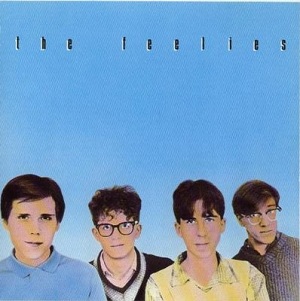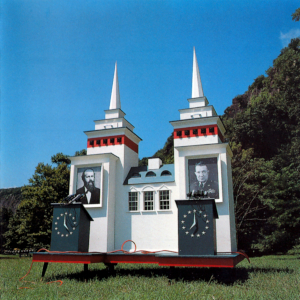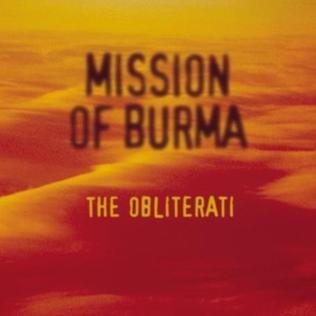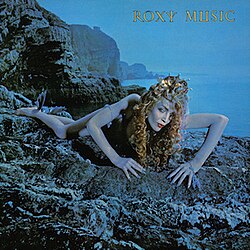Wagner requested I write about Pink Floyd this week. If you want me to write about a band or an album, let me know, and we’ll see if I have anything interesting to say.
Mount Everest’s Nepal base camp sits at 17,598 feet above sea level. That’s over 3,000 feet higher than any peak in the continental United States. Every year about 40,000 people make the journey there. Of those 40,000, between 600 and 1,000 will actually summit the mountain. But the trek to base camp is no walk in the park. First you have to fly into the Tenzing-Hillary Airport, which has a runway so microscopic that only the best pilots in the smallest and most agile aircraft can land on it. Then you have to make the hike, which itself takes ten days, and involves an elevation gain of 8,000 feet. Every couple thousand miles, you’ll need to take a break to time acclimate your body to the elevation. It’s no small feat making it to base camp.
In 1971, Pink Floyd were at base camp.
If Floyd never made an album after their 1967 debut Piper at the Gates of Dawn, they would be fondly remembered by music dorks like me in the same way as The 13th Floor Elevators, Love, and Moby Grape, iconoclastic psychedelic bands that made one excellent album during the Summer of Love and then vanished into the late ‘60s plunge pool of heavy drugs and mental illness. But Floyd didn’t get sucked away into that slipstream because they canned the bandmate, their frontman Syd Barrett, who was heading over the waterfall.
From 1968, when they booted Barrett, to 1971, Pink Floyd were in demand as a live band, recorded plenty of soundtrack work, and sold a lot of albums (the execrable Atom Heart Mother reached the top of the charts in the UK), but artistically, the band had plateaued. They were at base camp, seemingly adrift without their frontman, rehashing the avant-garde psychedelic jams of their early days, writing overblown orchestral suites, and making music that wouldn’t sound out of place airing on TV variety shows of the time. The space rock band of the Space Age was blowing it.
When they entered the studio to record what would be Meddle, each musician went off on their own to compose largely fruitless demos that they would dub “Nothing, Pts. 1-24.” Initially it seemed like the next album might just be a continuation of the scattershot Atom Heart Mother, but then something happened. Good material began to congeal. The boys began to climb the fucking mountain.
Meddle succeeds not by being different from the transitional albums that precede it, but by being better than them. Where Atom Heart Mother’s lengthy suites felt plodding and pretentious, Meddle’s are fleet and engaging. Where their earlier songs could feel like fragments, Meddle’s feel complete. Where earlier ideas could feel half-baked…uh, okay, “Seamus,” the one where the dog sings the blues, is pretty half-baked.
Most momentous, the “Nothing” demos actually turned into something: the band’s longest and most successful jam, “Echoes.” If you hear one Pink Floyd song, make it “Echoes.” There’s a reason they named their Greatest Hits album after it.
“Echoes” is to Floyd what “Dark Star” is to the Grateful Dead, a side-long jam that’s by turns enveloping and alienating. The song begins with a single, wobbly high note struck on a piano, like a submarine ping or the last transmission from a spacecraft. Then it repeats. The band enters, establishes a motif, and hits us with the chorus, wistful and wondering, sung in union. The song reaches cruising speed with a chucka-chucka funk thing (“Have a Cigar,” “Another Brick in the Wall,” take note), before dissolving into a cloud. Then another chorus, even more wistful, closes out the song. Now that’s space rock.
Although the album is a group project, its MVP is David Gilmour. I think, give or take a Johnny Ramone, Gilmour is the most emulated guitarist of the 1970s and Meddle is the first time we see him in his mature form. Although he’s not the fastest player in prog rock – Pink Floyd doesn’t have the virtuosos of, say, King Crimson or Yes – he’s quite versatile. On “One of these Days,” he showcases his slide playing, which sounds like a race car shifting from third to fourth gear. “Pillow of Winds” and “Fearless” feature his lyrical acoustic playing. Five minutes into “Echoes,” we get an early iteration of his iconic crystalline solos, with their constantly bent strings, slight crunch, and dab of delay. Later Floyd would recognize this as one of the superpowers and clear out whenever Gilmour attacked the fretboard, but on Meddle he’s just part of the jam.
But, as I said, the album is a group project. Everyone gets a turn on the mic, even drummer Nick Mason, whose single line, “One of these days, I’m going to cut you into little pieces,” is so chopped and screwed so he sounds like a demon. Richard Wright wrote the bulk of “Echoes,” and his piano, Hammond, and Farisa are all over the album. Only bassist Roger Waters, who would later become the lyrical and thematic, if not musical, leader of the band takes a backseat. His countryish “San Tropez” is the closest Pink Floyd comes to Little Feat.
You can chart Floyd’s subsequent albums as stops on the way up Everest: Dark Side of the Moon is Camp 1, Wish You Were Here is Camp 2, and Animals is Camp 3. (I guess 1972’s Obscured By Clouds could be their Khumbu Icefall, but I don’t consider it a real album.) The popularity of The Wall, the album, the tour, and the film is one of the highest highs anyone has ever reached in rock and roll (even if the music is kinda “eh,” but that’s a column for another time). The Wall, an opera about the loneliness and isolation of being at the top of the world, found Pink Floyd at the summit.
There was nowhere else they could go. Naturally, they broke up. The most dangerous part of climbing Everest is the descent.
I’ll take Meddle any day over The Wall. It shows a band struggling and largely succeeding to realize their ambitions. In 1971, Floyd had a good thing going, and they would’ve been warmly remembered even if they never made Dark Side of the Moon. They had a nice base camp. But, with their following albums, they punched a hole in the clouds.
FIVE MORE “BASE CAMP” ALBUMS:
Talking Heads’ Fear of Music: They dipped their toes in afrobeat with “I Zimbra” before committing fully with Remain in Light.
Sonic Youth’s EVOL: Once SY started writing songs instead of just sounds, they positioned themselves to be the greatest alternative band of all time. Masterpieces Sister and Daydream Nation followed.
The Cure’s Head on the Door: Although the kaleidoscopic double Kiss Me, Kiss Me, Kiss Me was released between it and their masterwork Disintegration, Head on the Door proved that The Cure had grander ambitions than making music about feeling bad.
Tom Waits’s Swordfishtrombones: With Waits’s first self-produced album, the pianoman shifted away from the drunk balladeer persona that made him famous(-ish) into the weird junkyard uncle that we love today. His subsequent albums Rain Dogs is his masterpiece.
Metallica’s Load: hahaha, jk. Maybe we should do an article about things in rock names after cum. Looking at you, Pearl Jam.







